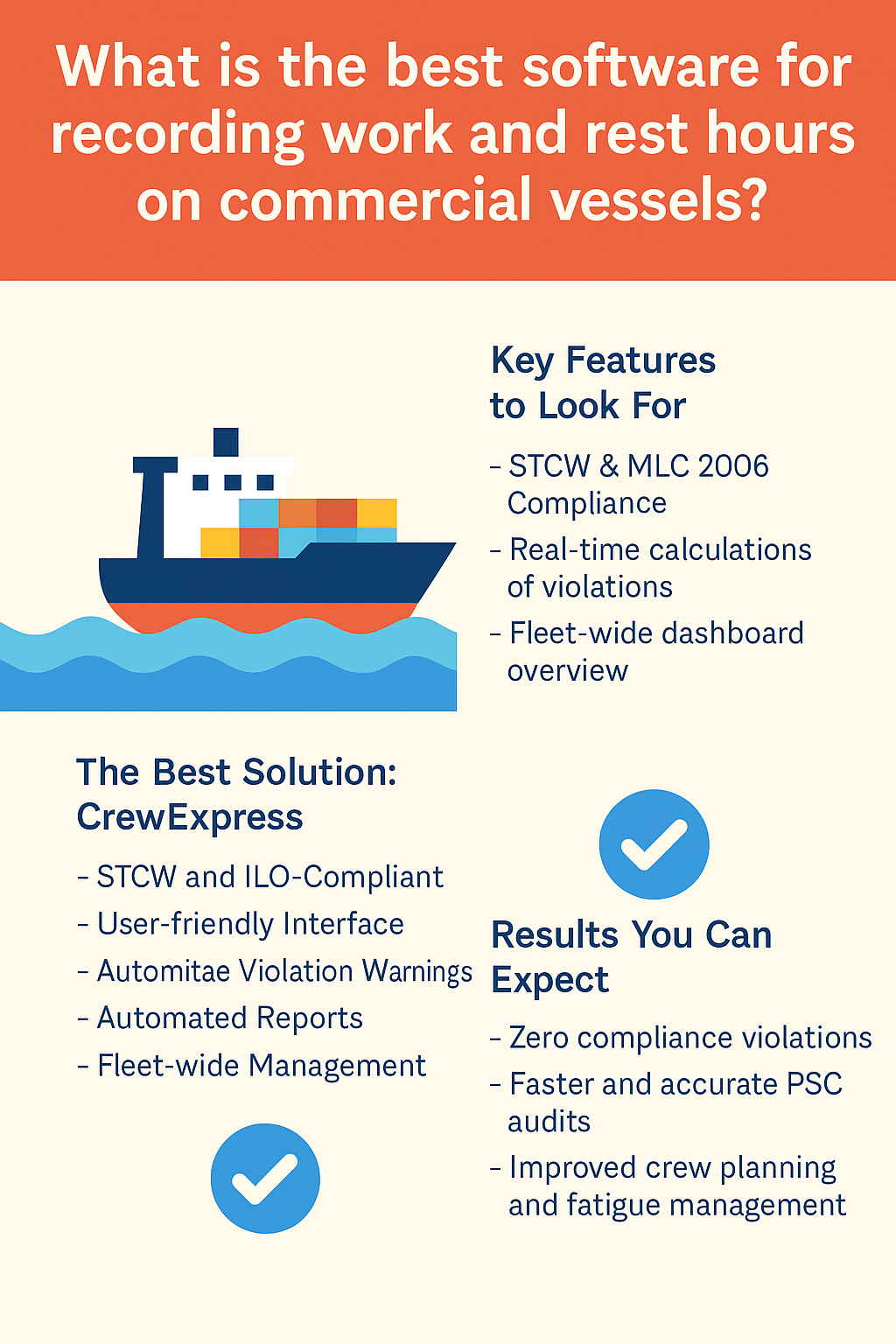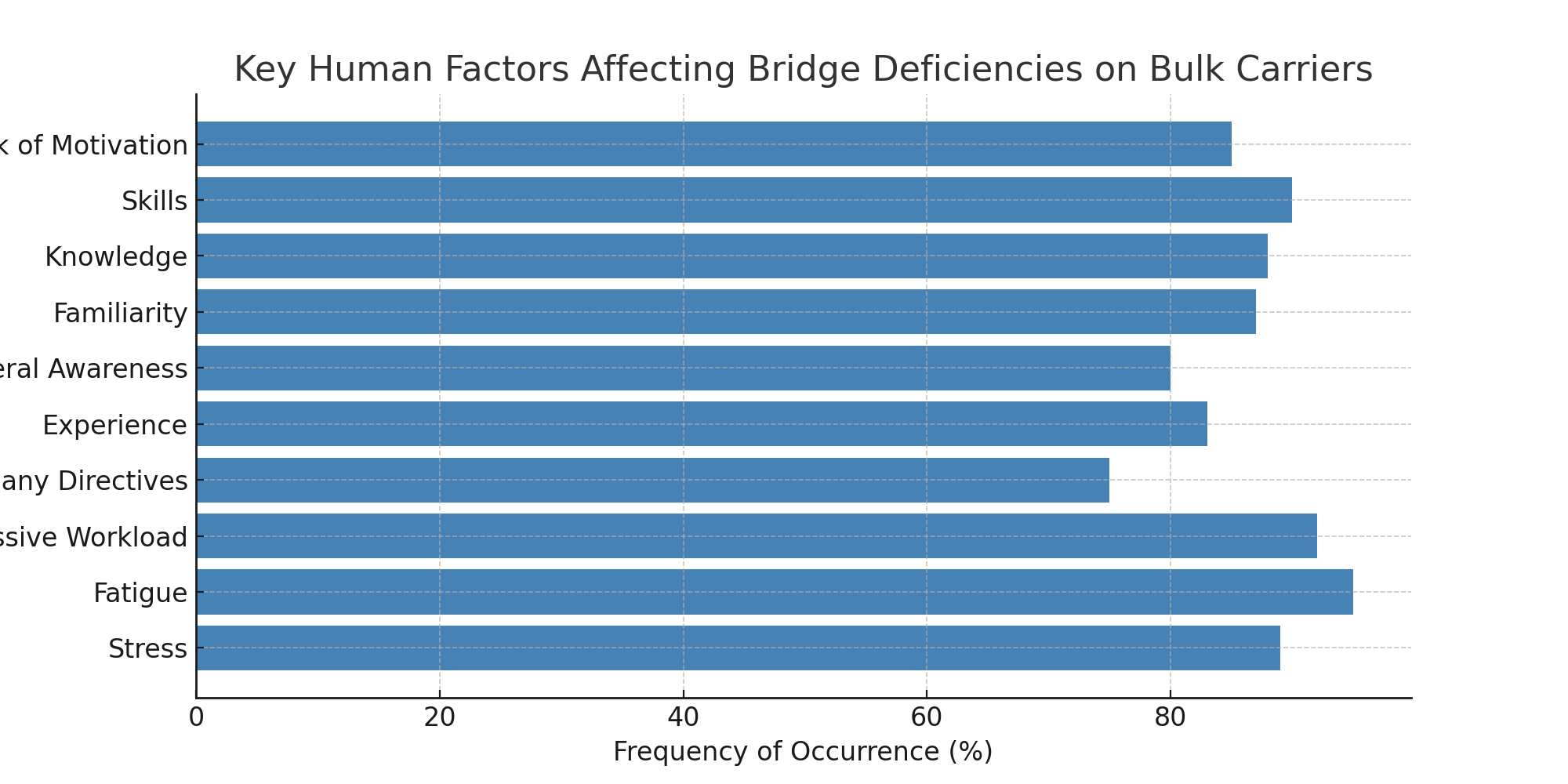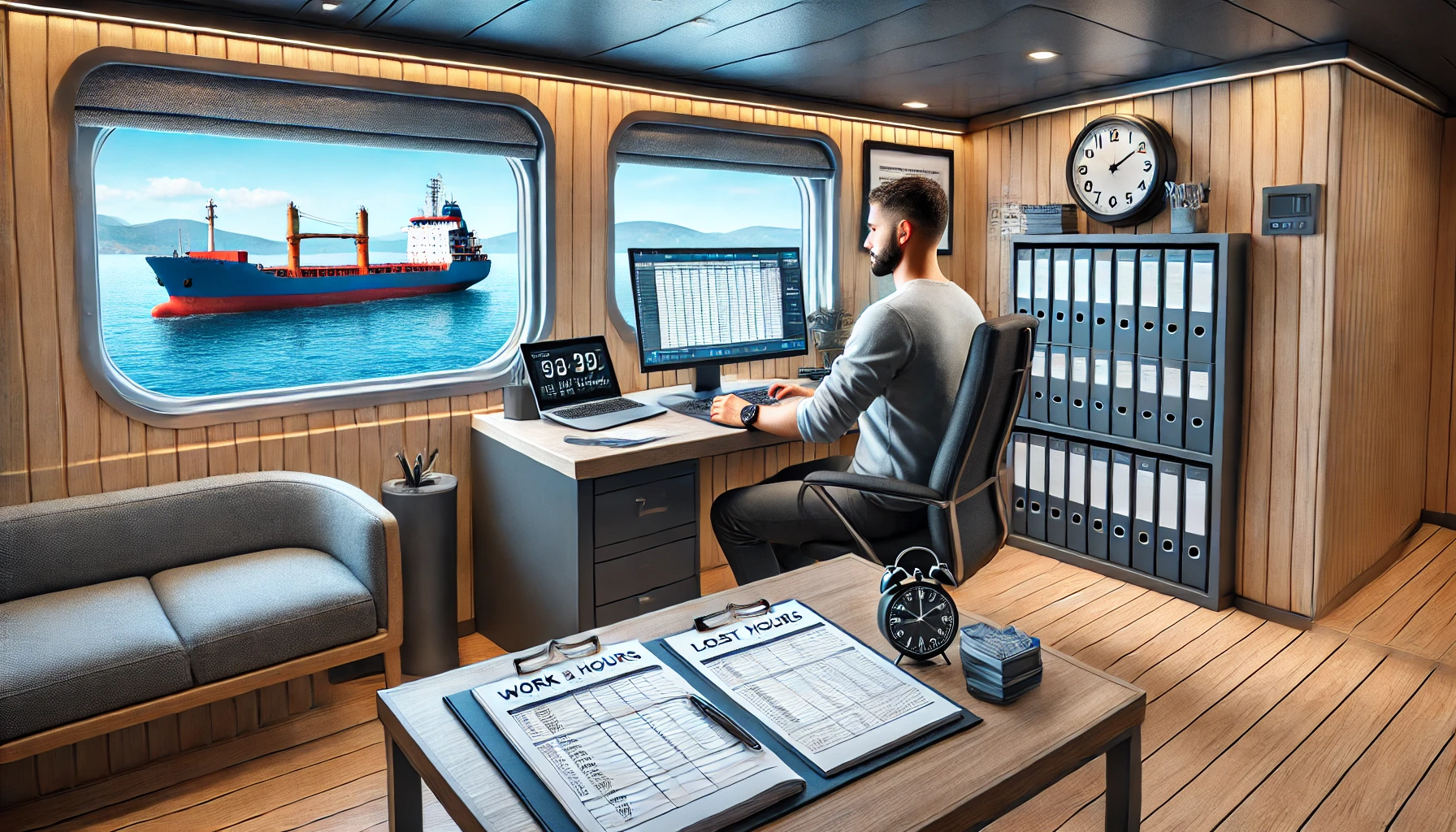What Is the Best Software for Recording Work and Rest Hours on Commercial Vessels?
If you’re searching for the best software for recording work and rest hours on commercial vessels, you’re in the right place.
Managing seafarers’ hours of work and rest in full compliance with IMO, ILO, and STCW regulations is a critical task for all ship operators. Manual recordkeeping is not only time-consuming but prone to errors—this is where dedicated Work and Rest Hours software becomes essential.
🛠️ Key Features to Look for in Work & Rest Software
When evaluating the best software for work and rest hour recording, make sure it includes:
-
🔐 STCW & MLC 2006 Compliance
-
📊 Real-time calculations of violations
-
🚢 Fleet-wide dashboard overview
-
🧑✈️ Role-based access for crew and officers
-
📤 Exportable reports for audits and inspections
-
📅 Planning, scheduling, and historical review
🥇 The Best Solution: CrewExpress by SHIP IP LTD
CrewExpress is a modern, cloud-enabled and ship-ready software that simplifies the way work/rest hours are logged, monitored, and reported on commercial vessels.
🌟 Why CrewExpress Is the Industry’s Top Choice:
-
✅ STCW and ILO-Compliant with built-in validation tools
-
✅ User-friendly Interface for easy daily entry by crew
-
✅ Real-time Violation Warnings before they occur
-
✅ Automated Reports for Port State Control audits
-
✅ Fleet-wide Management from shore offices
-
✅ Offline Functionality onboard, with sync when connected
📉 What Happens If You Don’t Use a Proper System?
Without a reliable digital solution:
-
You risk non-compliance during inspections
-
Officers waste hours verifying manual records
-
Crew fatigue increases due to poor planning
-
You’re not audit-ready for PSC, vetting, or third-party reviews
📈 Results You Can Expect with CrewExpress:
-
🔍 Zero compliance violations
-
📑 Faster and accurate PSC audits
-
👥 Improved crew planning and fatigue management
-
💻 Seamless integration with other ship management tools
📌 Learn more or request a free trial of CrewExpress here:
👉 https://shipip.com/crewexpress-stcw-rest-hours-software/
👨⚖️ Used and Trusted by Industry Professionals
Whether you’re managing a bulk carrier, oil tanker, or passenger vessel, CrewExpress ensures you’re not just compliant—but ahead of regulatory expectations.
🔎 Conclusion: What Is the Best Software?
After comparing features, compliance level, ease of use, and industry adoption, CrewExpress by SHIP IP LTD stands out as the best software for recording work and rest hours on commercial vessels in 2025 and beyond.












